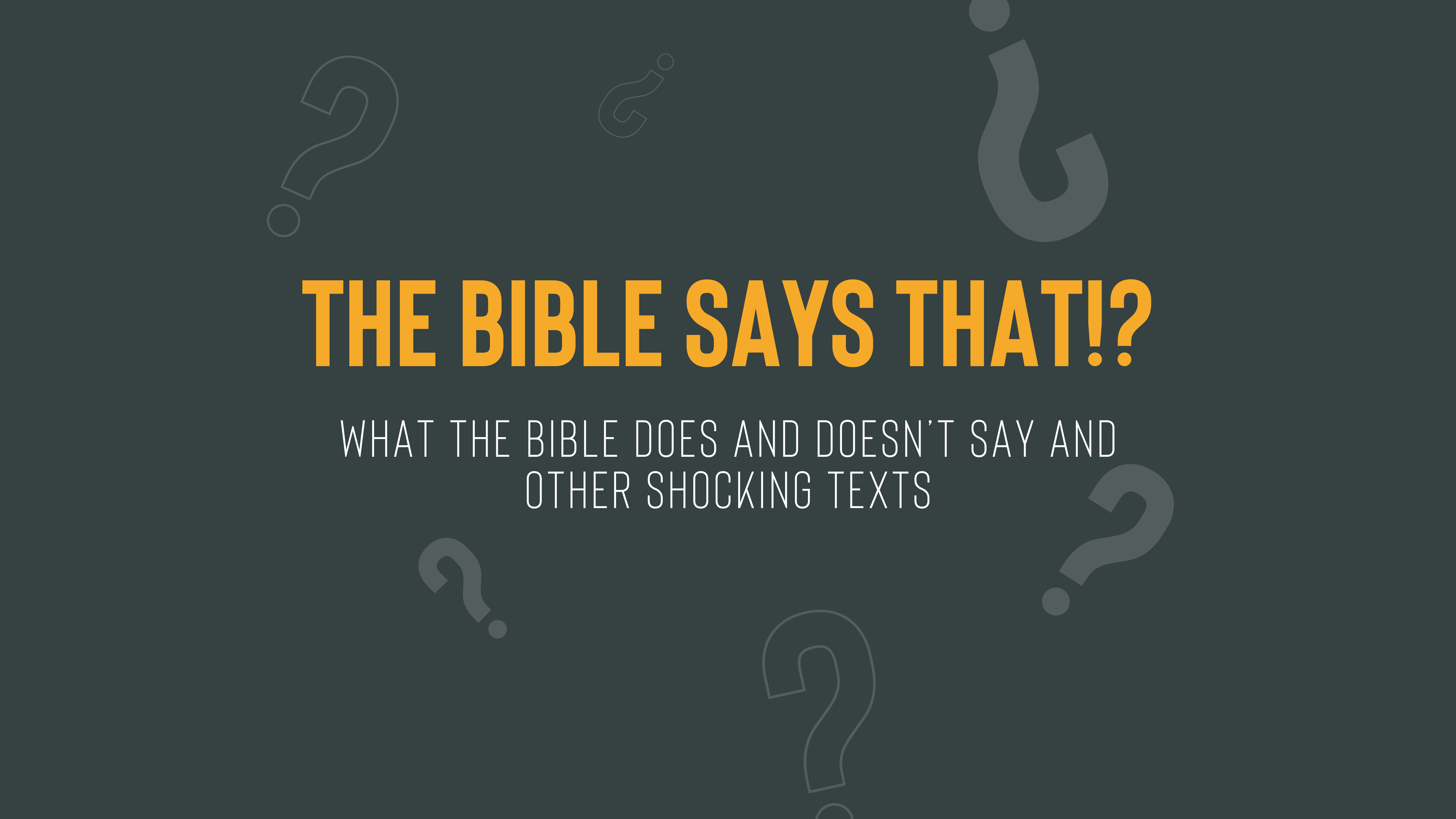The Bible Says That!? - Tension between Exilic Communities

Click Play below to listen as you read along
Intro
How do you typically respond to opposition? Are you more likely to quietly endure or to take a stand and resist? Why?
How should the people of God respond to oppression and Exile? Through Quiet Submission or violent resistance?
In 586, Babylon came in and completely exiled the people of Israel. They took the best and brightest to Babylon to put them to work to benefit the empire. Some of these people include Bible characters like Daniel, Hananaiah, Azariah, and Mishael, and Esther and Mordecai. Each of these characters belonged to a community within exile, and their respective texts seem to suggest that there were different responses to their oppression. Let’s take a look to see how each of these communities responded and what this means for our understanding of the biblical text and what it says about our response to oppression.
The way of Submission – Daniel and his friends
Read Daniel 1:1-16
What is Daniel’s and his friends response to their circumstances? Was it peaceful or rebellious? They refuse the King's food, but do so quietly, offering an alternative solution.
Read Daniel 3: 8-23
What are Hananiah, Azariah, and Mishael’s responses to their circumstances? Was it peaceful or rebellious? They refused to worship the golden image and did not actively fight back. They accepted the punishment at the mercy of the King.
Read Daniel 6: 1-16
What is Daniel’s and his friend's response to their circumstances? Was it peaceful or rebellious? Daniel continues to pray despite the decree but does not rebel against the law outright. Instead, he quietly resists.
Why do you think these men chose to react in this way?
Read Jeremiah 29:4-9 and Romans 13:1-7 and Acts 5:25-32
According to these passages, what should our response be to oppression, exile, physical harm, etc as God’s people?
What do you think was the purpose of Daniel and his friends’ approach?
How does this approach show trust in God?
Are there situations today where submission is the correct choice?
The Way of Violent Resistance – Ester and the Jews
Read Ester 3: 1-6, 12-15
What happens here in this story? Haman seeks to kill the Jewish people in exile.
Read Esther 4: 1-5, 12-17
How do the characters react to Haman’s persecution?
Read Esther 8: 11-14; 9:1-19
How do the characters react to Haman’s persecution after Esther speaks with the King? The Jewish people were given permission to defend themselves against Haman’s decree.
Read Isaiah 47:1-15;
How does Esther’s approach differ from Daniel’s?
Was the Jew’s resistance an act of Justice, or vengeance, or something else?
Are there times when Christians should take a stand and resist authority?
Settling the tension
Daniel’s group quietly endured exile and trusted in God. Esther’s group fought back while also trusting in God. Both approaches are found in scripture, suggesting that there is tension and complexity within the Bible and how Believers should respond to oppression. Let’s see how Jesus responded to oppression and similar situations
How does Jesus respond to acts of violence and oppression against him and against his followers?
When is the singular time that Jesus does use an act of potential violence? Clearing of the temple. Describe the nuance to John 2:13-17
How does Jesus respond in every other instance of violence against him? Cross, Peter’s sword incident, being flogged. There is never any violence against people, especially not taking a life.
How does Jesus resist, despite a non-violent response? He outwits the authorities, he displays authority, he proves himself through miracles, etc.
Likewise, how does the early church respond to acts of violence or oppression against them?
Acts 25:11 – Paul submits to the authorities.
Acts 16:35-40 – Yet he resists to make a point
Acts 4:18-21; 5:25-32 – Peter and John before the Sanhedrin. When asked to stop, they said “we must obey God! We can't stop!”
Acts 6:8-15; 7:54-60 – Stephens Martyrdom. He did not fight back when he was seized and killed. He boldly preached the truth of Jesus.
1 Peter 2:13-17; Rev. 2:10
Honor those with authority and submit, but do not worship them or offer up sacrifices to them, even when facing punishment or death.
Given everything we’ve talked about, which community do you think Jesus and the early church would most likely align? The Esther community or the Daniel community? Why?
